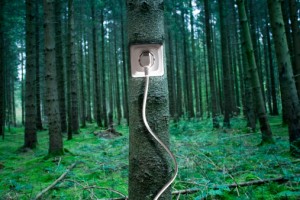EPA regs to increase Vermonters’ gas and electric bills by $880

GOING GREEN: New carbon regulations from the EPA will cause Vermonters’ gas and electric bills to rise by more than 30 percent over the next five years.
By Bruce Parker | Vermont Watchdog
By 2020, the average annual household gas and electric bill in Vermont will increase by more than $880, thanks to the Obama administration’s proposal to regulate carbon dioxide emissions from U.S. power plants.
A study released Thursday by Energy Ventures Analysis, a Virginia-based consulting firm, finds that EPA regulations will spike power and gas costs for residential, commercial and industrial customers by an estimated $284 billion over the next five years. The increase represents a 60 percent rise as Americans can expect to watch coal-based electricity decline and natural gas prices rise.
View the entire report online at the Energy Ventures Analysis website.
While the report shows that American households will see their electricity and natural gas bills rise about $680 annually compared to 2012 data, Vermonters will experience an even higher increase. Vermonters paid an average of $2,466 for gas and electric bills in 2012, but they will pay $3,348 in 2020. The cost of electricity will increase the most in states that have implemented deregulation of wholesale electric power markets.
Moreover, the power rate increase for industrial use is projected to rise from 10 cents per kilowatt hour to 12.3 cents per kilowatt hour.
The total annual cost of power and gas in Vermont will top $1 billion in 2020, a $300 million cost increase over 2012. Electricity costs make up $200 of that total increase.
“EVA’s analysis is the first to fully examine the combined economic impacts of the EPA’s long list of proposed and finalized regulations on the electric power industry, including the Mercury and Air Toxic Standards, regional haze regulations and the Clean Power Plan, whose four building blocks are based on flawed assumptions,” said Seth Schwartz, president of Energy Ventures Analysis.
“For example, existing coal-fueled generating facilities are already operating at very efficient levels and, collectively, will not be able to achieve an additional 6 percent heat rate improvement.”
The report claims the industrial sector will be hurt the most, especially aluminum, steel and chemical manufacturers, as these industries rely on reliable low-cost electricity to compete globally.
High-cost renewables generation is expected to almost double in Vermont at the same time EPA expects wholesale natural gas prices to more than double.
Contact Bruce Parker at bparker@watchdog.org







